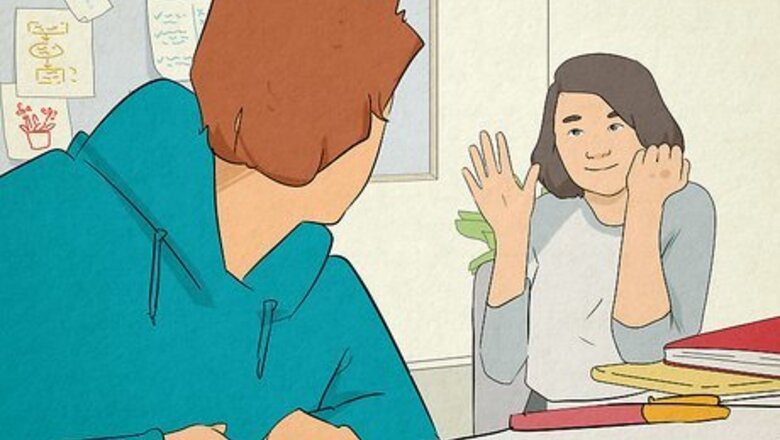
views
Identifying Potential Friends
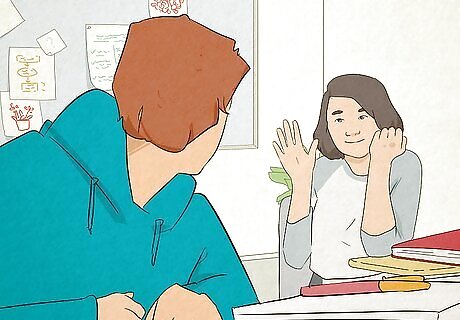
Notice people in your classes. Math class might not be your favorite pastime, but it can be a great place to make friends. One of the benefits to being a teen is that you go to school with hundreds of potential friends. The people in your classes are going to be close to your age, and if nothing else, you'll have that class in common. Start looking around the room to see if anyone in the class seems interesting or friendly. You could create a study group for a class. While you're studying and sharing notes, you might find that you have more in common with people in the group.

Look for other teens in your neighborhood. Outside of school, you can look for people your age out in the community. Go out to places where teens often hang out (e.g. pool) or volunteer in the community. You could also get a job at popular hang out spots. For example, if you decide to work at the movie theater, you will probably meet quite a few people coming in and out to watch movies. An even better option might be to work as a lifeguard at a pool.
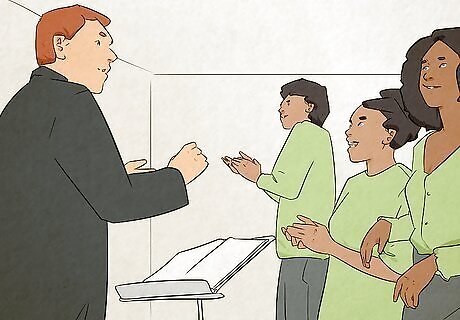
Join extracurricular activities at school. Most schools provide a host of extracurricular activities for students. Take advantage of this friend making opportunity by choosing an activity that most interests you. Chances are that other teens in the same activity will have things in common with you. If you are interested in music, you might want to join a band or choir. If you like to run, try joining a track team. These groups will give you opportunities to make new friends.

Go to clubs and public events in your area. Outside of school, communities often have their own groups and events for teens. Take advantage of these gatherings to give yourself the opportunity to make friends that live near you. This is a particularly good way to make friends in the summer or during other school breaks. For example, if your neighborhood has something like community garden club, consider joining to make new friends.
Approaching People

Be aware of your body language. Your body language can send the message that you are open and ready to talk to someone. It can also send the message that you'd rather be left alone. If you are nervous and uncomfortable, you may accidentally be sending messages that suggest that you'd rather be left alone than talk to people. This will discourage people from approaching you. For example, sitting with your arms or legs crossed gives the impression that you are closed off to other people. Smiling at people will signal that you notice them and are open to talking to them.

Observe their body language. Just like your body language is important, the other person's body language can give you a hint as to how they are feeling. If they seem closed off, they may be having a bad day or not feel like talking. If they are smiling and enjoying themselves, you might have more luck approaching them. Considering body language can help you avoid being shut down when someone is having a rough day. For example, if someone is sitting off to themselves with their arms crossed in front of them, they may not be open to being approached. If someone smiles at you, they may be interested in talking to you.
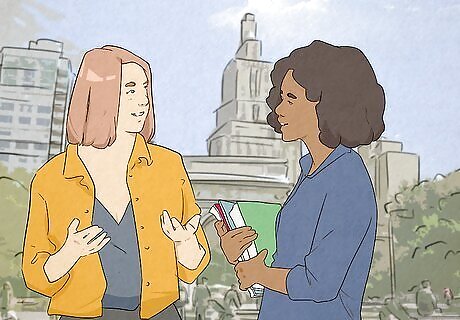
Make eye contact. Eye contact is important when you are trying to approach someone. If you look at them and they look away, they may be busy or not interested in talking. On the other hand, if they make eye contact with you, that is a good time to say something to them. For example, if you make brief eye contact with someone, reach your hand out and introduce yourself. Say something like “Hi, I'm Mike.”
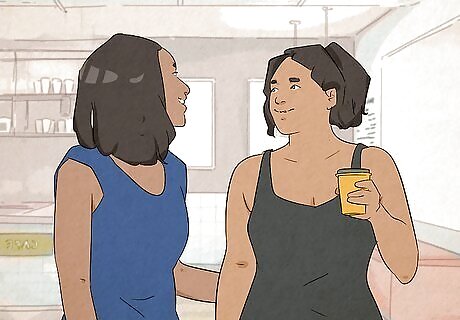
Drop a quick compliment. Most people enjoy being complimented. If you are having trouble approaching people to start conversations, try dropping a compliment on strangers as you walk by. There is no need to stop and try to initiate a conversation. You could say something like: I love those shoes! Awesome hair! That's a cute dog!
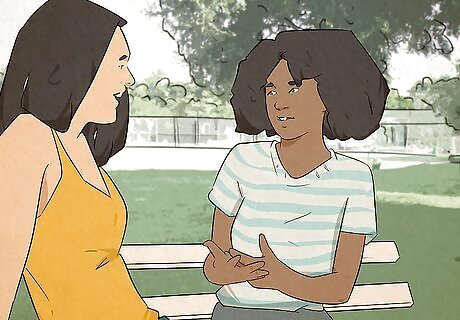
Ask a question. If you want to engage someone in conversation, you will do well to put the ball in their court. When you ask someone a question, they generally answer you. This is especially true if the question follows a compliment or is relative to the situation. For example, you might say, “Awesome hair! Who cuts it?”

Comment on the situation. You will often find yourself in social situations with people you don't know. If you want to talk to one of them, you can start the conversation by commenting on the situation. After all, at the very least you have one thing in common - you are both in the same place. For example, you might say something like, “I didn't expect there to be music here.” You might also try asking a question like, “So, what brings you out tonight?”
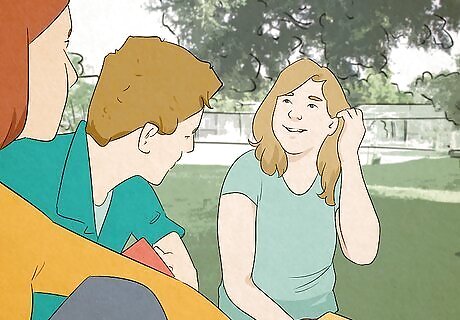
Realize that your insecurities are normal. If you feel nervous to go up and talk to strangers, you're not alone. You should know is that almost everyone feels the same hesitation. Just realizing that these insecurities are shared by other people can help you to work through them and find the courage to talk to someone new.
Nurturing Friendships

Spend time with your friends. To really make and keep friendships, you have to spend time with people. Once you've introduced yourself and become acquainted with someone, time has to be invested to turn that into a friendship. Make it a point to hang out regularly and talk often. For example, you could have a tradition that you and your friends go out to eat every Saturday.
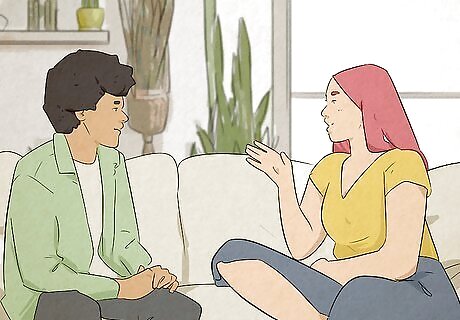
Be a good listener. Friendships are a two-way street. If you want to keep your friends, you need to be an active listener. This means that you should maintain eye contact when someone is speaking, confirm to them that you are hearing them (e.g. a nodding occasionally), and avoid interrupting. For example, if your friend is telling you about something that happened after school yesterday, keep eye contact with them instead of checking your phone.
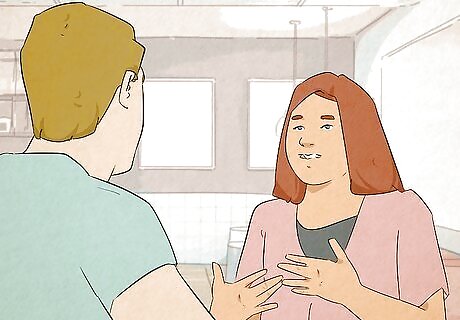
Communicate in an assertive way. Keeping good friends also means that your needs are met. In order for your friends to know what you need from them, you have to be assertive (not aggressive). This means clearly stating your stance on things (such as which movie to watch), but in a respectful way. For example, there is no need to call someone else's movie stupid just because it isn't the movie you chose.
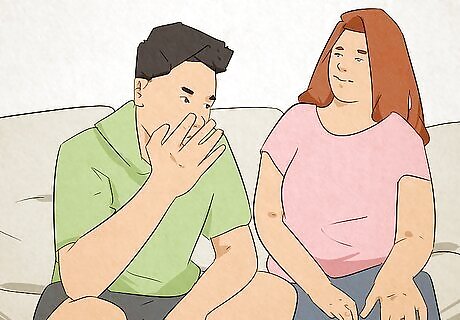
Share personal thoughts and experiences. It is important that your friends feel close to you. Sharing memories and personal experiences will help you and your friends bond. Just do not share too much too quickly. You want to be sure that you can trust your friend, and that you don't overwhelm them. For example, you might tell someone you've known for a long time about your family conflicts, but only tell someone you've known for a short time about a family vacation.
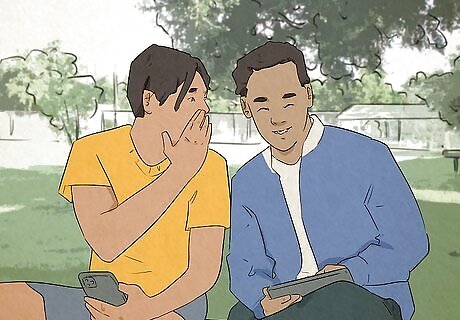
Keep your friends' secrets. Your friends are likely to confide in you as well. When they do, keep it to yourself. If you tell other people, you will betray your friend's trust and they will not trust you as much in the future. The exception to this is when your friend tells you that they might hurt themselves or someone else. In that case, you should seek help for your friend.

Stay open minded. You and your friends will inevitably disagree on some things. When that happens, remember that they are your friend and that you respect them. Agree to disagree, but do not belittle your friends. For example, if you discover that your friend does not like the same music as you, just agree to disagree. Belittling their music or genre will just hurt your friendship. If your friends like different things, it might be worthwhile to try them out. You might like them, too.
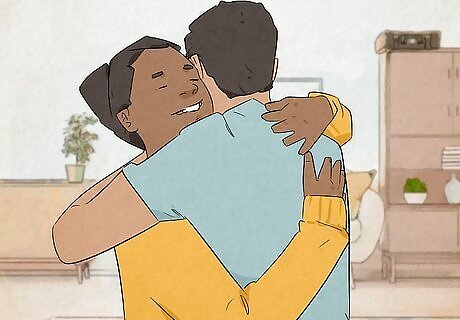
Show up for your friends. One of the most important things a friend can do is show up when another friend is in need. If your friend needs someone to talk to, or help with something, you should try your best to be available. You should also expect the same treatment in return. For example, if a friend is going through a breakup and needs someone to talk to, be there for them.


















Comments
0 comment